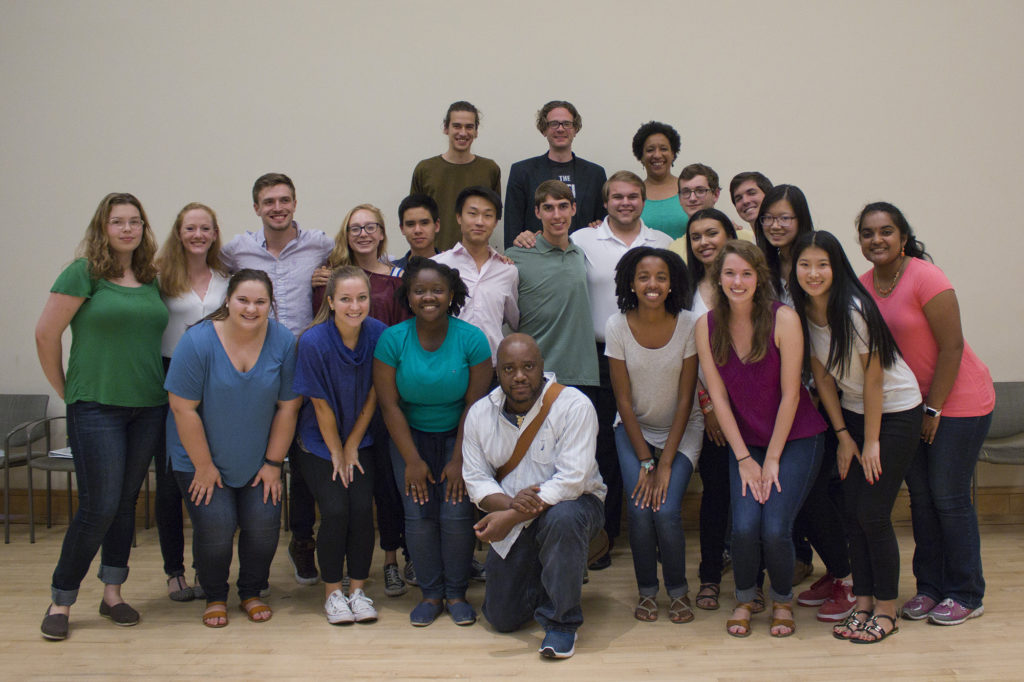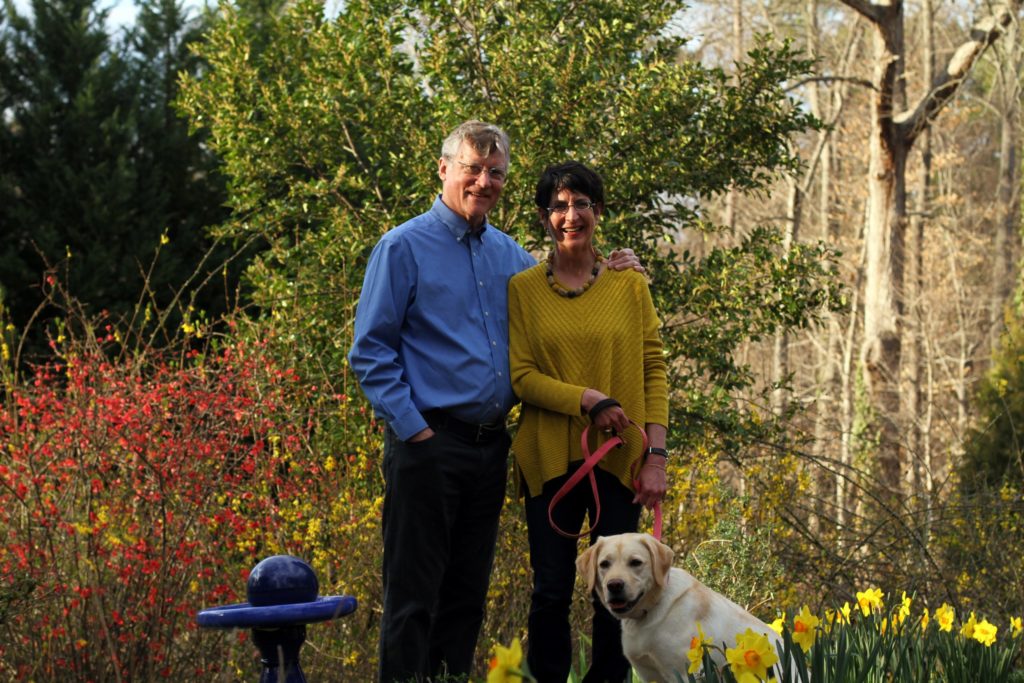
Last fall, each student in Marc Cohen’s English 105 class spent four hours shadowing a medical professional in the UNC Emergency Department, immersed in the organized chaos of emergency medicine. Students then reflected on their experience by writing about it.
It is easy to get into a routine: eating the same food, seeing the same people, studying the same things in the same way. Professor Marc Cohen wanted to change that routine.This past fall semester, Cohen and his English 105 students embarked on a journey that, for some, changed the course of their educational career.
English 105 introduces students to academic writing across the disciplines of natural sciences, social sciences and humanities. This course develops advanced writing skills that focus on identifying how genres, styles of writing, arguments and forms of evidence differ across disciplines, audiences and purposes. The breadth of focus in English 105 allows for innovative, real-world, experiential teaching courses, like those crafted by Cohen.
In collaboration with the chair of UNC Hospitals Emergency Department, Jane Brice, each student in Cohen’s English 105 class spent four hours shadowing a medical professional in the UNC Emergency Department, immersed in the organized chaos of emergency medicine. Students then reflected on their experience by writing a piece in the style of Pulitzer Prize-winning New York Times journalist Sheri Fink, author of “Life, Death, and Grim Routine Fill the Day at a Liberian Ebola Clinic,” a story in which Fink uses experiential writing to describe a makeshift West African Ebola clinic. Cohen asked students to draw inspiration from her writing style to bring to life their unique shadowing experience. “I’m a big believer in experiential education,” said Cohen. “Writing about an experience like that calls upon every skill that a writer has in his or her toolkit.”
Students were assigned to one of the four areas of the the Emergency Department: the Main Emergency Department, Psychiatric Emergency Services, the Pediatric Emergency Department and Emergency Medical Services. No two students had the same experience: some dealt with intense trauma situations, others had conversations with patients under psychiatric care, and a few spent time in the back of an ambulance. Despite these differences, every student learned that there are skills that transcend any one genre. Writing about experience encouraged students to hone every writing skill they had. Storytelling, analyzing, bringing people and experiences to life. These are vital to any field.

The ER doctor who first-year Ariana Luterman shadowed was an English major, who emphasized his firm belief that every student should take some English classes in order to learn how to articulate their thoughts in a concise and effective manner. Luterman described her shadowing experience as “mind-blowing.” She came to UNC planning to major in nutritional science, but this project led her to realize she has a passion for storytelling. “This project really opened my eyes to the English major and how I absolutely love writing about science,” said Luterman. “I found the English major with a concentration in scientific literature and medicine, and that was it.” She credits this project with giving her the tools to learn how to tell stories in an effective and powerful way.
Mervan Fadhil, a student of Cohen planning to attend a Physician’s Assistant program, emphasized the importance of clear communication in the medical field. She described how it is essential that doctors skillfully and efficiently communicate with each other in order to provide patients with the best care possible. Every participating student learned something unique from this experience. Not only did they experience an energetic, adrenaline-filled day in a doctor’s life in the Emergency Department, but they also acquired writing skills that can be applied to any genre or field.
Cohen believes that, by using this project to hone their writing and storytelling skills, his students have achieved something important. “Shadowing in the ER taught us about emergency medicine, yes. But it also opened our eyes to certain realities in our culture. This experience… it kind of rocked our worlds,” said Cohen.
By Halynna Snyder, Digital Communications Intern, Department of English and Comparative Literature



